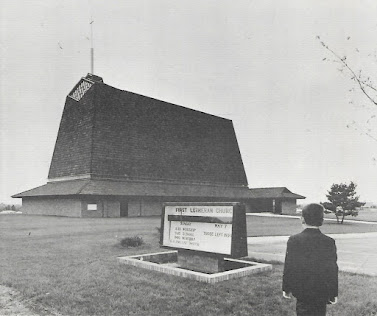Resilience
By Deacon Sunni Richardson, Director for Leadership Development
RESILIENCE!
Resilience is the capacity to recover quickly from difficulties. For Matt Bloom of the University of Notre Dame, resilience shows up in both the capacity to respond to challenges and the capacity to grow and learn from those challenges at the same time. Resilience requires both strength and flexibility.
First, a big round of applause to all of the congregations who quickly exercised flexibility. We need a photo gallery on the Synod web page with showing worship leaders with smart phones balanced on hymnals, cardboard boxes crafted in to recording studios and teen tutors with pastors, deacons, and PMAs learning to use new apps. Bravo!
But … I have to ask, have we been adaptive? I know we adapted. Online worship was new for the majority of our Nebraska Synod congregations. It was a steep learning curve for many. The learning, however, was technical. Learning how to record worship, downloading video to the web site, complying with copyright laws, and measuring the sanctuary so you could have families safely spaced 6’ apart, were all technical skills. These are challenges that were identifiable, required only a handful of changes and were solved by an authority or expert. I am not saying the solutions were always easy, but they were technical tasks.
Adaptive challenges, in contrast, are difficult to identify and easy to deny. They require changes in values, beliefs, roles, relationships, and approaches to the work. The solutions require new discoveries and cannot be implemented by an edict. I think the adaptive work is yet to come. The adaptive challenges come to play when we start to ask, “What’s the new normal?”. Because my friends, there is no going back to normal! We are never going back to pre-pandemic days. Life has been changed. Is the church going to change?
I challenge you to engage in conversation about the new normal. It may help to start with what has not changed. I would offer these examples: our theological grounding has remained the same, prayer continues to be vital and we still celebrate the sacraments of Holy Baptism and Eucharist. And, we continue to be terrible evangelists afraid to share our faith stories.
Adaptive questions are vague, and answers require teamwork, imagination, trust, deep listening, and experimentation. Moving to a new normal means asking hard questions and being willing to take risks while remaining true to the core purpose and mission. It requires an openness to growth and the ability to learn. This is where resilience comes into the picture. As I said earlier, resilience requires strength and flexibility. Resilient leaders keep going because they are committed to the cause. Yes, they get tired, have doubts, and suffer from fatigue. Through intentional reflection, prayer and practice, resilient leaders, lay and rostered, find a new sense of commitment and refuse to throw in the towel. They adapt and are adaptive.
The pandemic has brought much pain and suffering. Let us not forget. The church prevailed, gathered for worship, and continued to care for neighbors. We adapted. Now, let’s be resilient, adaptive leaders and be the church of the future for the sake of the world.
Resources:
• “Tempered Resilience - How Leaders Are Formed in the Crucible of Change”
– Todd Bolsinger
• “Canoeing the Mountains: Christian Leadership in Uncharted Territory
– Todd Bolsinger
• “The Post Quarantine Church – Six Urgent Challenges & Opportunities That Will
Determine the Future of Your Congregation” – Thom S. Rainer
• “Weird Church: Welcome to the Twenty-First Century” – Paul Nixon and
Beth Ann Estock
• Check out this less than 4-minute video explaining adaptive leadership.
https://www.youtube.com/watch?v=cRMOLKGFLJk




Comments
Post a Comment